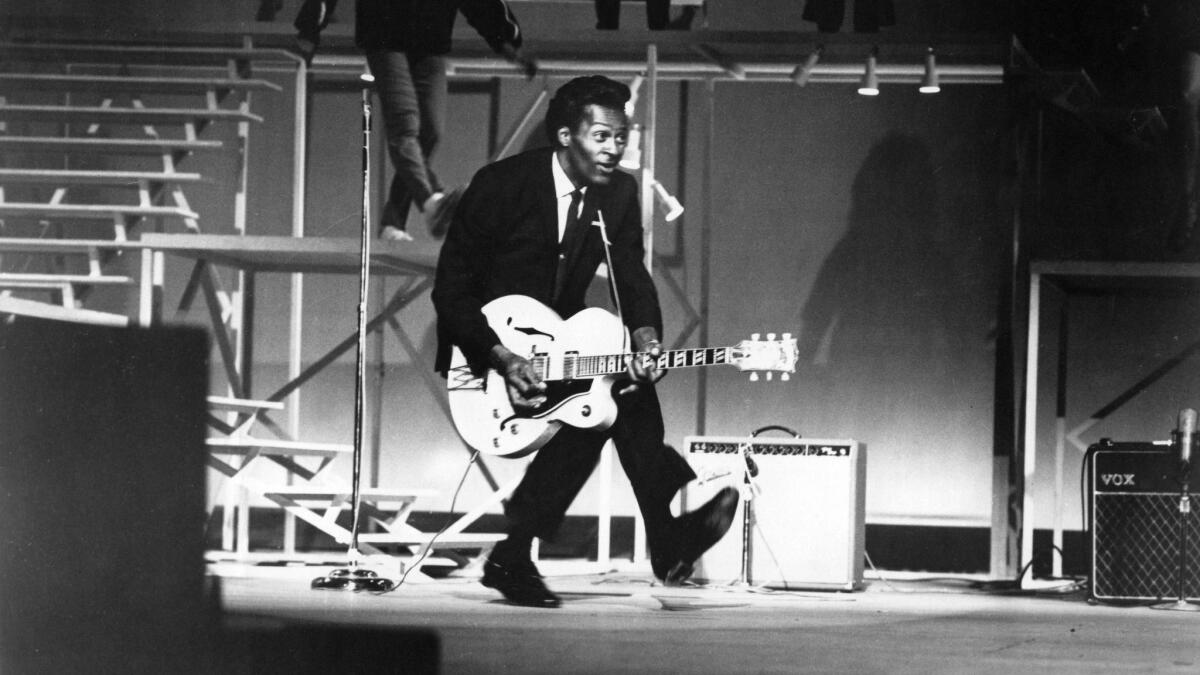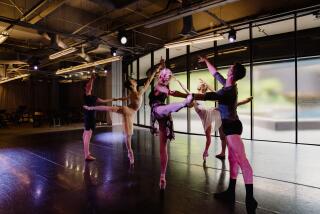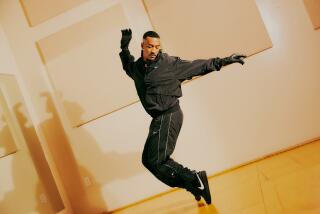‘It’s like “ratchet” dancing today’: Famed choreographer Frank Gatson Jr. on Chuck Berry’s moves

Frank Gatson Jr. is Beyoncé’s creative director, and he danced in Michael Jackson’s video for “Smooth Criminal.” He knows what era-shaking stage moves look like.
But even he marvels at the wild, sexy and ingenious “duck walk” that helped make Chuck Berry a superstar.
“Any time anybody acts like a rock star, they have a certain way of standing, and you have to give Chuck that credit,” Gatson said. “He is responsible for how rock ’n’ roll stands. He had a stance that’s as forever as Michael Jackson or Fred Astaire. That’s big!”
In the wake of Berry’s death at 90, many have lionized his contributions to rock ’n’ roll music. Aside from essentially solidifying it as a genre, he also wrote some of rock’s most lasting songs, such as “Maybellene” and “Johnny B. Goode.”
But his physical presence onstage — knees pointing inward, guitar cocked like a rifle, or slinking across the stage with one leg extended — defined how rock ’n’ roll looked. His idea of how a frontman danced is one of the great American cultural images.
“The way he inverted he knees was amazing to me,” Gatson said. “His gyrations, his duck walk and the way he pointed his guitar like a gun? That transcends time.”
Berry was significantly older than his teenage fans at the time of the breakthrough singles in the mid ’50s. But he had an uncanny knack for anticipating what they wanted in a rock musician — sexual transgressiveness, a blending of blues and country and, above all, a look that promised a new kind of excitement in the mid-century.
Berry’s hip-swinging, toe-curling stance at the microphone — and the barely metaphorical way he thrust his guitar out during solos — could heat the blood like nothing else at the time.
“It was so sexual. For kids who were rebelling, it was new seeing someone be sexual in public,” Gatson said. “When kids saw Chuck Berry onstage, they loved it. It’s like ‘ratchet’ dancing today.”
For devoted rock ’n’ rollers, even little things like the fall of Berry’s hair set a new precedent.
“A lot of black men at the time treated their hair, and the way his hair fell in his face, he always had to brush it back. I’m a true believer in hair choreography, when you move it out of your eyes it just makes everything more fun and vibrant.”
Gatson is one of pop and R&B’s most renowned choreographers. Alongside his long career with Beyoncé, he regularly choreographs for acts such as Rihanna and Usher, and he spent much of his early career dancing in music videos and on stages.
For him, Berry’s dancing is a connective thread among generations of black music, which includes the most up-to-the-moment pop from his current clients. “When Beyoncé played the Super Bowl, she had pyro effects inside the guitar, and they pointed it just like Chuck Berry,” he said.
And while white acts including Elvis and the Rolling Stones owe Berry an obvious debt (perhaps even much of their careers, as Keith Richards would likely admit), Berry’s ability to rouse young fans of all races was fundamentally a gift, even if he didn’t see all the monetary benefit of such a monumental vision.
It was important that “white artists and fans respected him,” Gatson said. “Music builds bridges and understanding. It was so great to have a genius like Chuck in America. Everything about him was rebellious.”
“Where did he learn it?” he added, still in awe of Berry’s physical gifts decades later. “I think it had to be in church. Have you ever seen someone catch the Holy Ghost? It’s all in the feet. When a woman catches the Holy Ghost in church and loses her wig, you don’t know what’s going to happen.”
For breaking music news, follow @augustbrown on Twitter.
ALSO:
More to Read
The biggest entertainment stories
Get our big stories about Hollywood, film, television, music, arts, culture and more right in your inbox as soon as they publish.
You may occasionally receive promotional content from the Los Angeles Times.











